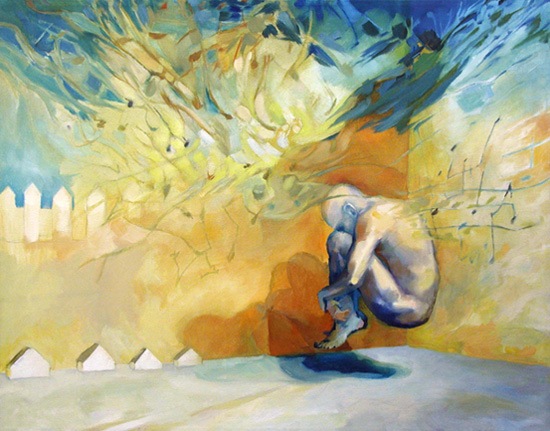- SELF STUDY MODULES
- 1. Intro to TBI
- 2. Communication
- 3. Skills for independence
- 4. Cognitive changes
- 5. Behaviour changes
- 6. Sexuality
- 7. Case management (BIR)
- 8. No longer available
- 9. Mobility & motor control
- 10. Mental health & TBI:
an introduction - 11. Mental health problems
and TBI: diagnosis
& management - 12. Working with Families
after Traumatic Injury:
An Introduction - 13. Goal setting
- 11.0 Aims
- 11.0A Take the PRE-Test
- 11.1 Mental health & mental illness & TBI
- 11.2 Factors affecting the risk of psychiatric illness after a TBI
- 11.3 The brain and psychiatric illness
- 11.4 Severity of a TBI
- 11.5 Types of mental health problems after a TBI
- a) Mood disorders
- b) Psychotic disorders
- c) Anxiety
- d) Personality
- 11.6 Sam : case study
- 11.7 Diagnostic challenges:
- a) Person with TBI
- b) Inherent in the disease
- c) Social environment
- d) Psychiatry and services
- 11.8 Management challenges
- a) Person with TBI
- b) Medical services
- c) Family
- d) Rehabilitation team
- 11.9 Take home messages
- 11.10 Resources
- 11.11 Take the POST-test
11.5a Types of mental health problems after a TBI: Mood disorders
i) Types of mood disorders
There are a number of types of mood disorders that can be diagnosed following a traumatic brain injury.
The following mood disorders can be found in the DSM IV - the Diagnostic and Statistical Manual (4th Edition).
Major depressive disorder
Major depressive disorder is the characteristic severe depression. Dysthymic disorders also arise but they are a less severe characterisation of the disturbance of mood than that seen in a major depression.
Bipolar disorders
In bipolar disorders there can be a depressed phase. Bipolar can be further divided into Type 1 and Type 2. The distinguishing between Type 1 and Type 2 depends on the characterisation of the manic symptoms.
Adjustment disorder with depressed mood
Adjustment disorder with depressed mood occurs when the person has mood symptoms but some reactivity of mood.
Psychological factors are important in the genesis of this disorder.
Major depressive disorder following closed head injury
Finally the diagnosis can be a depressive disorder following a traumatic brain injury, when the clinician is convinced structural brain injury is an important aetiological factor in the illness onset.

ii) Relationship of mood disorder to brain injury
It is important to be able to identify what the relationship of the mood disorder is to the brain injury.
People may develop mood disorders very shortly after the brain injury. In this case it is highly likely that the actual damage to the brain and the chemical changes that occur are implicated in causing the mood disorder.
In this situation we use the diagnosis of a depressive disorder following closed injury or depressive disorder following brain injury.
If a person develops a mood disorder following a brain injury two or three years later and the relationship with the actual structural injury with the brain is distant you are more likely to make the diagnosis of a major depressive disorder. The depression is then likely a response to the stresses and changes associated with the brain injury.
There are a number of other psychiatric diagnoses that also can include predominant depressed mood but the diagnoses are different. The management may also different.
The diagnostic groups that can have significant depressive symptomatology include:
- delirium where the person can be very quiet and withdrawn and
- dementia where the predominant disturbance is that of cognitive function but they also may be very depressed and withdrawn.
In schizophrenia people can have significant depressive symptoms in the prodrome, the period of time before the onset of acute psychotic symptoms and they can also have a depressive illness subsequent to the acute psychosis.
Finally in obsessive compulsive disorders, posttraumatic stress disorder and other anxiety disorder depressed mood can be a component or a feature of these diagnoses.
It is important to make the appropriate diagnosis because the management strategies can differ substantially, for example, with that of a major depressive disorder and a delirium.
Is it likely that if a person develops a mood disorder immediately following a brain injury that the brain injury caused the mood disorder?
Is it likely that if a person develops a mood disorder two or three years after the brain injury that the brain injury caused the mood disorder?
What diagnoses have significant depressed mood as a symptom which would not be diagnosed as a depressive disorder?
References:
1. Mood disorders following traumatic brain injury: chapter 4 : in The behavioural and emotional complications of traumatic brain injury. SF Crowe. Taylor and Francis. New York 2007.
2. Mood disorders RE Jorge, RG Robinson. Chapter 10 In; Textbook of Traumatic Brain Injury. Ed. JM Silver, TW McAllister, SC Yudofsky. American Psychiatri Press. Washington DC, 2011.
3. Clinical considerations for the diagnosis of major depression after moderate to severe TBI. RT Steel, S Macciocchi, JS Kreuter. J. Head Trauma Rehabilitation, Vol 25 (2), 99 – 112. 2010
